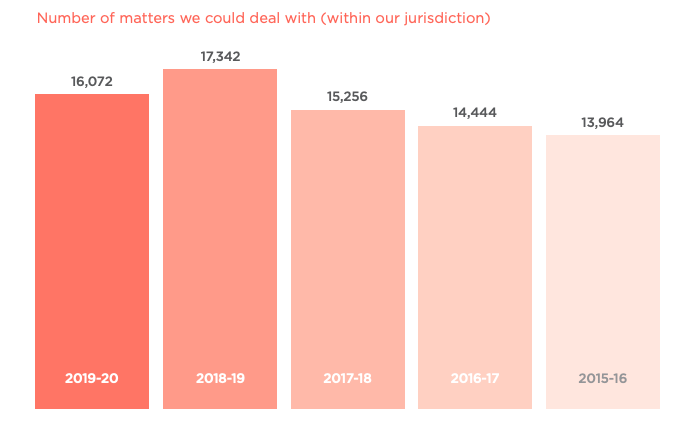
The state’s ombudsman is investigating whether Victorian councils have fair and accessible financial hardship schemes for ratepayers.

Ombudsman Deborah Glass says more ratepayers are likely to be struggling in the wake of COVID-19 and the economic downturn.
The inquiry will look at financial hardship measures at the state’s 79 councils to see if they are fair and accessible, and how they compare to similar hardship schemes available for electricity, gas, water and other state government schemes.
The investigation will also look at what councils can learn from COVID-19 o improve future relief schemes.
Ms Glass says rate payer complaints were common before COVID-19 and it’s clear ongoing problems will endure beyond the pandemic.
“I believe it is important to look at how councils in different parts of Victoria respond to hardship, to identify good practice that can be shared across the sector,” she said.
The investigation is expected to finish in the first half of 2021.
Complaints at second highest level ever
Meanwhile the ombudsman’s Annual Report and Annual Plan, tabled in parliament on Wednesday, show complaints to the office were the second-highest on record over the past 12 months, with the number of whistleblower matters looked into up by 96 per cent over the past three years.
The number of complaints received by the Ombudsman’s office, that were within its jurisdiction, decreased by 7 per cent in 2019-20 compared with the previous year.

“Despite this, it was still the second highest number of jurisdictional complaints our office has ever received,” the report says.
The number of approaches to the office increased by four per cent to 45,165 in 2019-20.
The ombudsman’s office has authority to investigate complaints about more than 1,000 state and local government-related organisations.
Councils are among the three most complained about authorities, accounting for 22 per cent of all complaints.
Ms Glass said the COVID-19 crisis has made her office more relevant than ever.
However she took a swip at the state government for cutting funding to her office, saying it would make it hard for her to exercise new powers recently vested in her by parliament, and to respond to increasing demands resulting from expanded whistleblower laws.
“Once again, my ongoing funding has fallen substantially short of what is needed to respond to public expectations of my office,” Ms Glass said.
“The funding of integrity agencies should be above the politics of the day – a principle even more important given our mandate to investigate the government.”
Comment below to have your say on this story.
If you have a news story or tip-off, get in touch at editorial@governmentnews.com.au.
Sign up to the Government News newsletter
One thought on “Council financial hardship schemes under scrutiny”
Leave a comment:
Most read
Scathing report finds little has changed at PwC
Qld council welcomes progress on massive battery system
Inquiry to consider how federal govt can address councils’ sustainability issues
‘Local’ procurement turns out not to be so local, committee hears
Another report finds local government falling down on cyber security
Totally agree with you here Deborah. The situation is the same with the Public Record Office Of Victoria.Your responsibilities go hand in hand with record keeping standards of state and local government agencies for unless records are kept in line with the PROV,s standards and guidelines you will get inadequate and less accurate information for you to investigate properly. You should investigate why the Draft New Public Records Act is still gathering dust at the DPC who after all has in its portfolio the PROV. Most records and information professionals are hanging out for it to be enacted. I will be in contact with you in relation to this matter. Regards